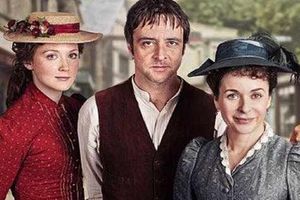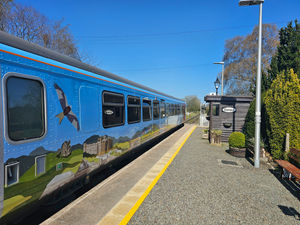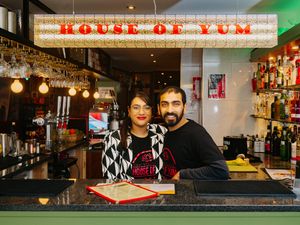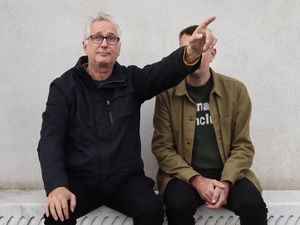Farewell, Lark Rise to Candleford. Thank God.
Telly Talk: "As she grew older, Queenie Turrell could see visions of the future," we were told at the opening of last night's final episode of Lark Rise to Candleford.

 As she grew older, Queenie Turrell could see visions of the future, we were told at the opening of last night's final episode of Lark Rise to Candleford.
As she grew older, Queenie Turrell could see visions of the future, we were told at the opening of last night's final episode of Lark Rise to Candleford.
And see visions she did, of chimneys, smoke, factories and misery - the future, on its way to this quiet little village in Oxfordshire.
The future was also being made in Candleford. In the programme's incredibly ham-fisted way of hammering home the point, of taking a metaphor and beating the viewer almost to death with it, Gabriel Cochrane finally revealed his new invention: a farming machine that ploughed furrows, planted seeds and then covered them over.
Do you see the point they were getting at? Change. In the village. A way of life altering forever. The future. On the march. FOR GOD'S SAKE KEEP UP! IT'S THE FUTURE! ARRIVING IN CANDLEFORD! DON'T YOU SEE! DON'T YOU SEE!
Naturally, the farm workers were not happy. "Isn't the land kind enough for us?" said Alfie Arless, a sort of slightly less intellectual Benny from Crossroads."If there's no work for us we take home no wages."
And even Queenie, worried by this emphasis on efficiency, felt moved to chime in: "Who decided that it is a crime and a waste that a bird will pick up a few spare seeds?"
Gabriel Cochrane could only offer them words about progress and change, and how they would all benefit.
It's a brave programme that runs with this idea of fearing the future. Before the episode was over the residents of Candleford had risen up in a Luddite revolution, destroyed the machine with their bare hands and ripped Mr Cochrane limb from limb, leaving his head impaled on a pole in the centre of the village. Future be damned, they wrote in his blood.
Actually, this didn't happen at all. Instead we were left with the characters wobbling on in their incredibly predictable ways. You could see almost from the opening credits that Alf would propose to Minnie, that Mr Cochrane would finally end up with the lovely Dorcas Lane from the post office (probably with a view to closing it down in order to improve the service), and that all of them, every single one, would talk in that stilted, slow, Poundland philosopher manner that drives you straight to the drinks cabinet.
"It seemed back then that everyone sang," said Laura Timmins in the voice over. No they didn't, sweetheart, and they certainly didn't come out with phrases such as "I cried with such rage I thought the sky would crack","I want to hold you, promise you happiness but I can't - that would make me a liar", "If I do something that my own heart does not believe to be right, how can I look at my children?" and "I want to live and be loved...by you". Eeeugh!
However, by far the worst sin was Alfie's proposal to Minnie, where he turned up with what seemed to be the whole of Candleford behind him, including a band, and proposed in the middle of the street. This was a romantic scene written by a committee. You've seen it done better - and with more authenticity and truth - on Friends.
And speaking of authenticity and truth, it's interesting that Lark Rise was followed by the Bafta Awards. Now, I may be wrong here, but the Oscars don't, as a rule, spend the first few minutes telling you how important they are and how exciting it all is. They don't need to because they are. So why do the Baftas have to tell us about their importance? "Excitement is building," said voiceover woman. Really? Well, how about showing rather then telling? Basically, you're having to hype it up a bit in the hope that we, the viewer will stay interested. Bad news - I had a pile of washing up to get through.
Still, I was impressed when the show opened and a hoodie came out to bust some moves.
Old Rossy may be 50, I thought, but he's still got it...





